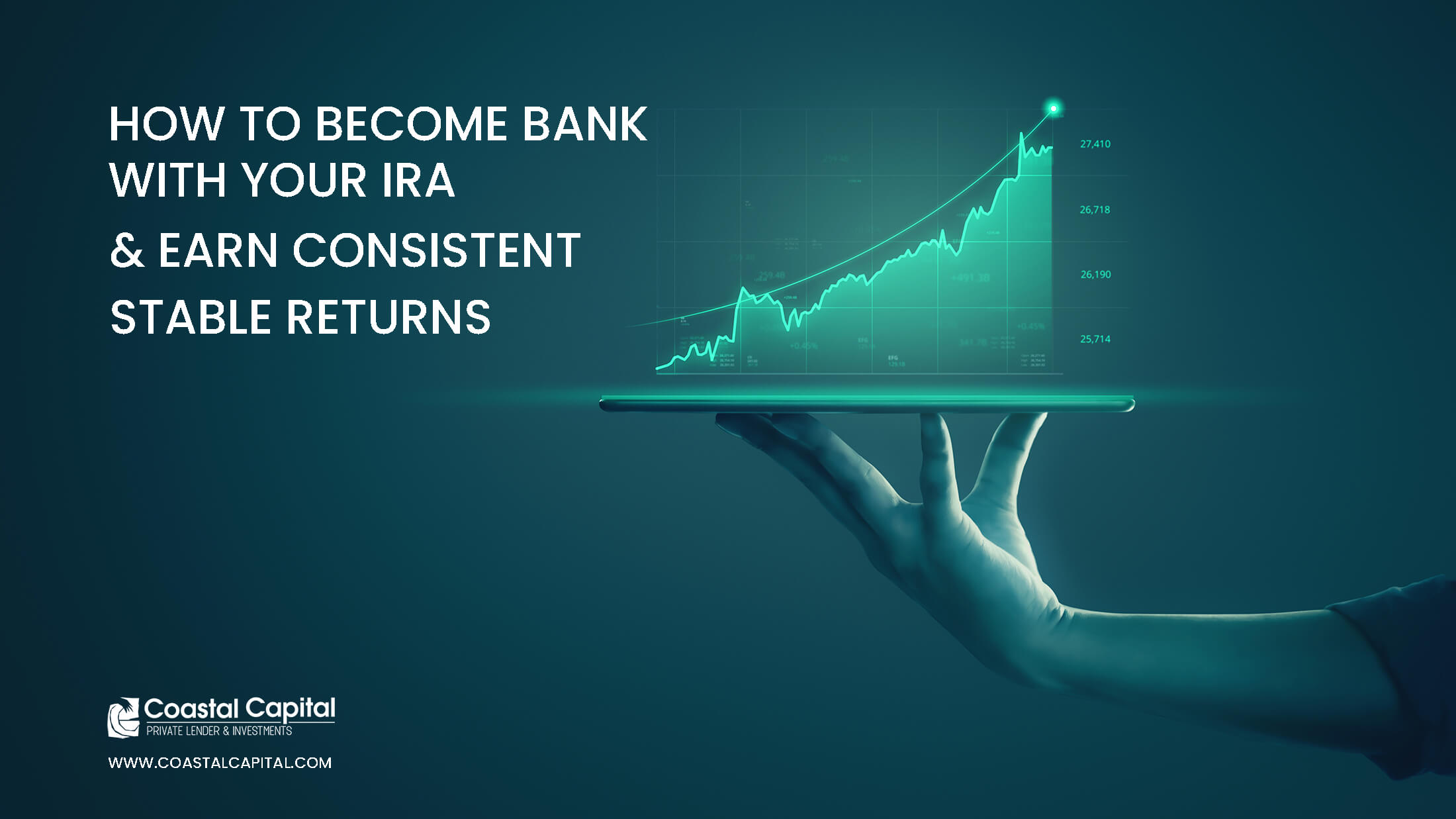How To Become A Bank With Your IRA & Earn Consistent Stable Returns

The concept of banking is quite simple: The bank pays interest to customers who deposit money and charges a higher interest to those who borrow (that is secured by low-risk real estate.) This same strategy is available to all investors through trust deed investing who can consistently earn 12% annually with little risk. Earning consistent stable returns month after month.
The concept is foreign to many, but it’s actually already in practice and isn’t as complicated as you might assume. The strategy is known as “trust-deeds investing,” through which many investors have become one-person banks using self-managed retirement funds.
What Is a Trust-Deed Investment?
Quite plainly, a trust deed investment is when an individual lends money to a borrower for a real estate purchase. When you invest in trust deeds, you act as a lender and offer financing to a property owner. The loan is secured with a property, and in the event of default its title transfers to you, the lender, through foreclosure.
To complete the lending process, the borrower will sign two documents: a deed of trust and a promissory note. The deed of trust is signed by the borrower and recorded a normal escrow process, so you are secured. This is a public record of the debt which makes sure that the lender will be repaid if the property is sold. The promissory note is kept by the investor or lender and contains the loan information, including the terms, interest rates, and payment schedule.
The Benefits of Trust Deed Investment
The benefits of this investment option are numerous. First, it allows investors to earn a steady income. The interest is predetermined when you issue the loan — in contrast with other forms of investments — so your income is predictable and secured.
Another advantage of investing in trust deeds is the passive nature of this strategy. Even though it is a type of real-estate investment, you have no landlord responsibility. You are simply a lender, which means no dealing with tenants or property maintenance and repairs. You collect interest even when the rental property is vacant.
The fact that you are somewhat removed from the property — by virtue of being only a lender and not a property owner — also makes trust deeds a great choice for retirement accounts, which require account owners to keep all investments at arm’s length.
Trust Deed Investments with a Self-Directed IRA
Trust deeds often come with interest rates of up to 10 to 14%, which is comparable to the 10% historical average annual return of the S&P500. Plus, the risk is lower with the loan secured by a property. Adding trust deeds to a retirement plan could be a great way to diversify and improve the overall rate of return for investors.
Traditional retirement plans, however, do not allow the additions of alternative assets like trust deeds. The solution is to use a self-directed IRA or Solo 401k and other similar retirement accounts, which give account owners virtually unlimited investment choices. Unlike conventional retirement accounts that tend to limit investment options to stocks, self-directed ones can invest in nontraditional assets such as commercial and residential real estate, precious metals, trust deeds and much more. Here at Coastal Capital, we partner with The Entrust Group one of the largest and most trusted self-directed IRA management companies. If you need assistance in transferring funds from your current IRA we can help facilitate.
Open the Door to Modern Real Estate Investment
Earn Consistent Stable Returns

